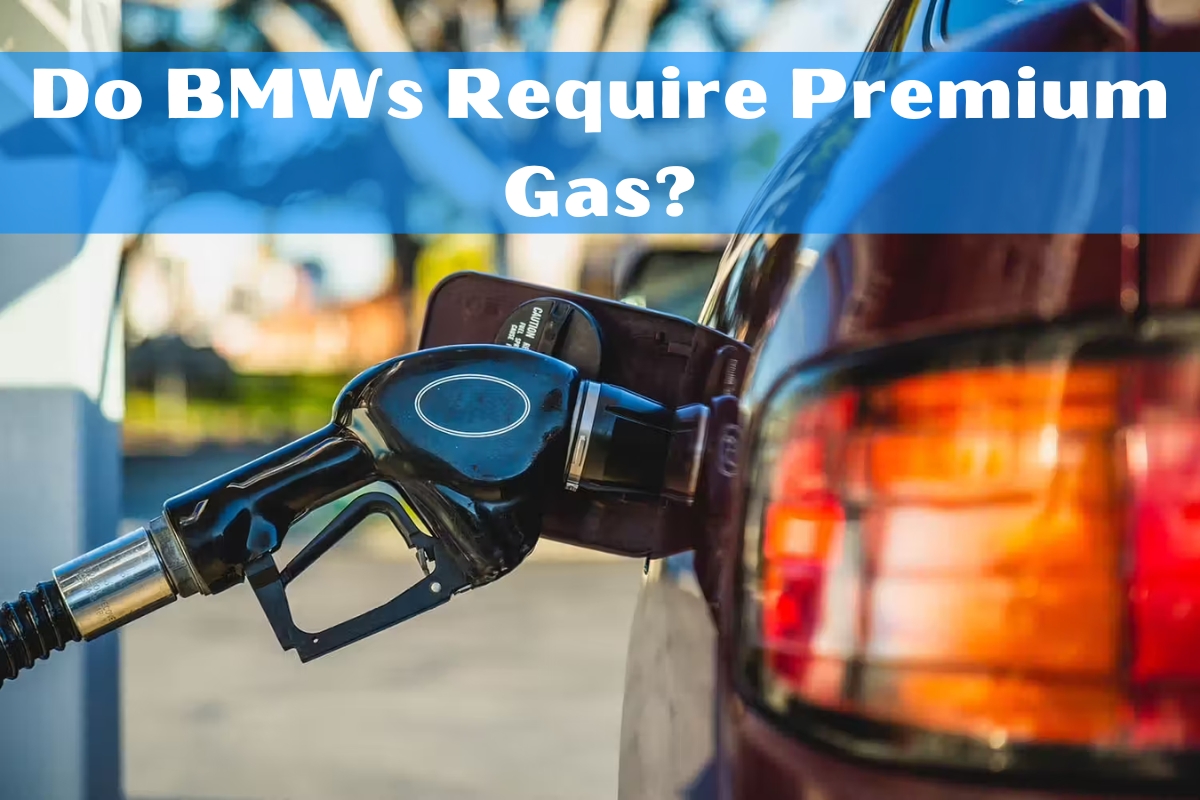Do BMWs Require Premium Gas?

As the owner of a premium vehicle like a BMW, you may have wondered – do BMWs require premium gas? The short answer is yes, BMW recommends using premium unleaded gasoline with a high octane rating in their vehicles. But there’s more to this topic than a simple yes or no. In this comprehensive guide, we’ll explore the reasons behind BMW’s fuel recommendations, the consequences of using lower-grade fuel, and what factors you should consider when choosing the right gasoline for your vehicle.
What is the Difference Between Premium and Regular Gasoline?
Before diving into BMW’s fuel requirements, it’s essential to understand the distinction between premium and regular gasoline. The primary difference lies in their octane ratings.
Octane rating measures a fuel’s resistance to premature combustion or “engine knocking.” The higher the octane number, the more resistant the fuel is to knocking. Regular gasoline typically has an octane rating of 87, while premium unleaded gasoline ranges from 91 to 93 octane.
Engines with higher compression ratios or forced induction (like turbochargers) generate more cylinder pressure during combustion. These engines perform better with higher-octane fuel that can withstand the increased pressure without premature ignition, which can damage the engine.
Do All BMWs Need Premium Gas?
While BMW recommends using premium gas across their entire lineup, some models absolutely require it due to their high-performance engineering. BMWs with the following features typically mandate the use of premium fuel:
- High compression ratio engines (usually above 10:1)
- Turbocharged or twin-turbocharged engines
- M-badged high-performance models (M3, M5, etc.)
Using lower-octane regular gas in these vehicles could lead to severe engine knock, reduced performance, and potential long-term damage.
However, some non-turbocharged BMW models with lower compression ratios may run on regular gas without significant issues, albeit with a slight decrease in power and fuel efficiency. Still, it’s advisable to follow the manufacturer’s recommendations in the owner’s manual for optimal performance and engine longevity.
Benefits of Using Premium Gas in BMWs
Even if your BMW can technically run on regular gasoline, using premium fuel offers several tangible benefits:
- Improved Acceleration and Horsepower: High-octane fuel allows the engine’s computer to advance the timing for optimal combustion, resulting in better acceleration and higher horsepower output.
- Better Fuel Efficiency: Premium gas burns more completely, reducing engine deposits and improving combustion efficiency, which can lead to slightly better gas mileage over time.
- Protection Against Engine Knocking/Pinging: The higher octane rating prevents premature combustion and engine knocking, safeguarding your engine from potential damage.
- Longevity of Engine Components: Premium fuel’s additives help keep fuel injectors, valves, and other critical components cleaner, reducing wear and tear on the engine.
Consequences of Using Regular Gas in BMWs
While some BMW models may run on regular gas without immediate issues, using lower-octane fuel can have adverse effects, especially in the long run:
- Loss of Power and Performance: The engine’s computer will retard the ignition timing to prevent knocking, resulting in reduced acceleration and horsepower output.
- Potential for Engine Knocking/Pinging: If the engine’s computer cannot adequately compensate for the lower-octane fuel, engine knocking or pinging may occur, leading to potential engine damage over time.
- Increased Engine Wear: Regular gas lacks the cleaning additives found in premium fuel, potentially leading to increased buildup and wear on critical engine components.
- Void Manufacturer’s Warranty: Using a lower fuel grade than recommended by the manufacturer could potentially void your vehicle’s warranty if engine damage occurs due to the improper fuel.
Factors to Consider When Choosing Fuel Grade
While premium gas is the recommended choice for BMWs, cost is often a significant factor for many owners. When deciding which fuel grade to use, consider the following:
- Your Driving Habits: If you frequently engage in spirited or aggressive driving, premium gas may be more beneficial to prevent engine knock and maintain optimal performance.
- Age and Condition of Your BMW: Older BMWs or those with high mileage may benefit more from the cleaning additives found in premium gasoline.
- Balance of Performance Needs vs. Cost Savings: Evaluate whether the potential performance gains and long-term benefits of premium gas outweigh the cost savings of using regular fuel in your specific situation.
- Top Tier vs. Other Fuel Detergent Additives: Look for gasoline brands that meet the Top Tier standards for detergent additives, as these can help keep your engine cleaner, regardless of the octane rating.
Tips for Maximizing Performance and Efficiency
Regardless of the fuel grade you choose, following these tips can help ensure your BMW operates at its best:
- Always Refer to the Owner’s Manual: Consult your owner’s manual for the manufacturer’s specific fuel recommendations for your BMW model.
- Use Top Tier Premium Gas: If using premium fuel, opt for brands that meet the Top Tier standards for detergent additives, as these can help keep your engine cleaner and running more efficiently.
- Keep Up with Maintenance: Regular maintenance, such as oil changes, air filter replacements, and spark plug replacements, can help optimize your BMW’s performance and fuel efficiency.
- Practice Eco-Driving Techniques: Adopting eco-friendly driving habits, like gradual acceleration, maintaining a consistent speed, and minimizing idling, can improve your fuel economy regardless of the gas grade you use.
Balancing Cost vs. Performance
While the potential benefits of using premium gas in BMWs are clear, the higher cost is often a deterrent for many owners. However, it’s essential to consider the long-term implications of using a lower fuel grade than recommended.
If you frequently engage in spirited driving or own a high-performance BMW model, the relatively small price difference between premium and regular gas may be a worthwhile investment. The improved acceleration, protection against engine knocking, and potential for better fuel efficiency can outweigh the upfront cost.
On the other hand, if you primarily use your BMW for daily commuting or more sedate driving, the cost savings of using regular gas might be appealing. However, be mindful of the potential long-term effects on engine wear and performance degradation, especially in older or high-mileage BMWs.
Ultimately, it’s a personal decision that balances your driving needs, budget, and the long-term health of your vehicle. If you do choose to use regular gas, consider using a top-tier fuel brand with better detergent additives to help mitigate the potential negative effects.






